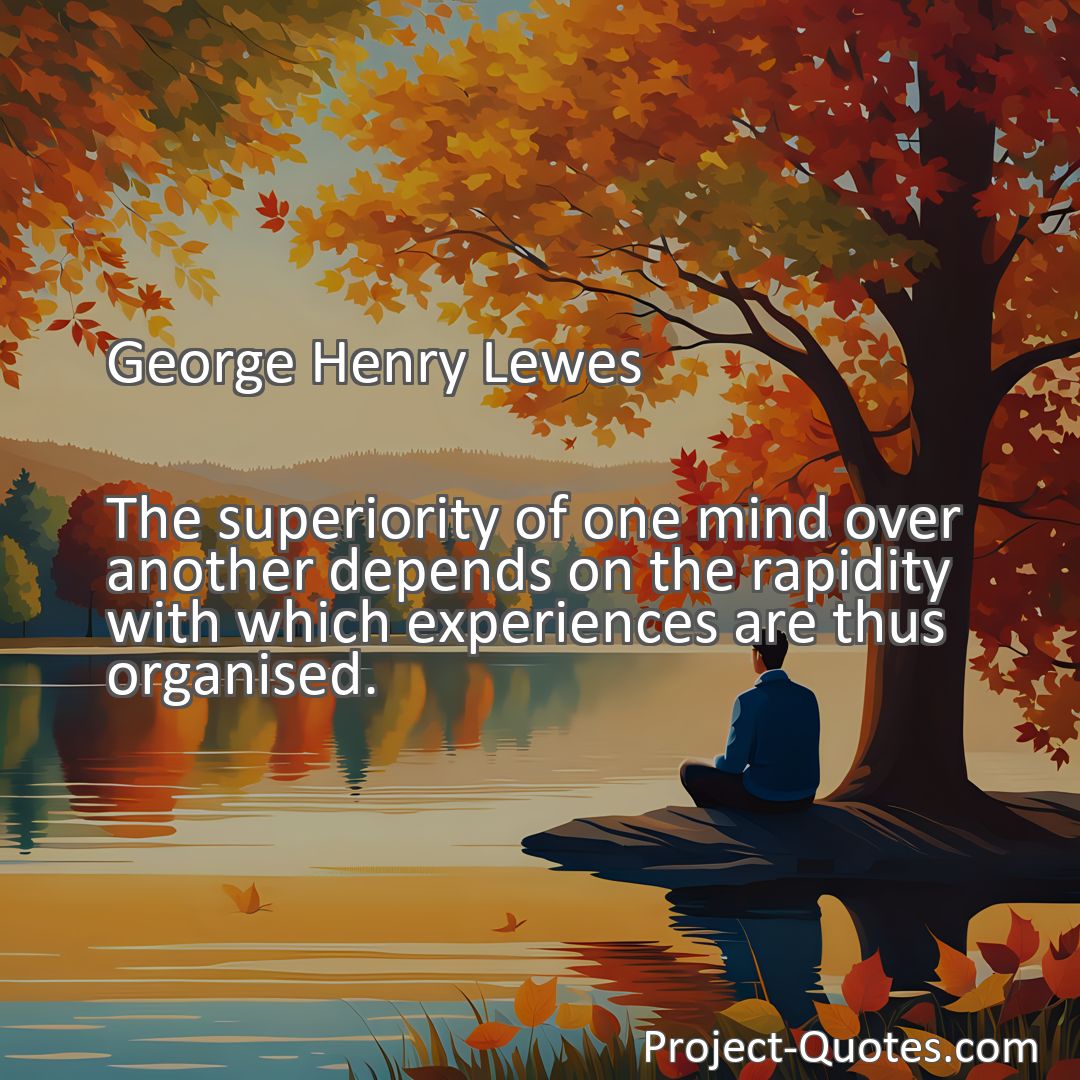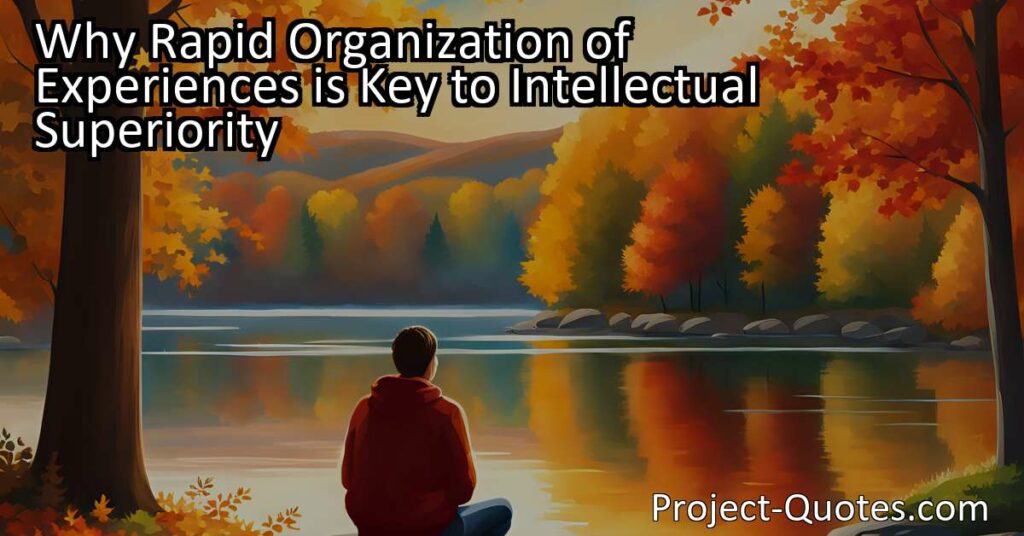The superiority of one mind over another depends on the rapidity with which experiences are thus organised.
George Henry Lewes
The key to intellectual superiority lies in the rapid organization of experiences. Those who possess the ability to quickly make sense of their experiences, identify patterns, and extract valuable insights have a distinct advantage. This skill can be developed through mindful observation, reflection, and deliberate practice, allowing individuals to excel in various aspects of life.
Table of Contents
Meaning of Quote – The superiority of one mind over another depends on the rapidity with which experiences are thus organised.
Have you ever wondered why some people seem to be more intelligent or possess a superior mind compared to others? It all comes down to how efficiently one can organize their experiences. As the famous quote suggests, the superiority of one mind over another relies heavily on the rapidity with which experiences are organized.
When we talk about organizing experiences, we are essentially discussing the process of making sense of the world around us and our interactions with it. Each day brings a multitude of experiences, from the mundane to the extraordinary, and our ability to understand, analyze, and learn from these experiences is what sets us apart.
Imagine two individuals, each facing the same situation or challenge. The first person might simply go through the experience, not paying much attention to the details or reflecting on what can be learned. However, the second person possesses the ability to quickly organize their thoughts and experiences, bringing clarity and understanding to the situation at hand.
Rapidity in organizing experiences goes beyond just the speed at which one can recall information or solve problems. It also involves the agility to connect seemingly unrelated experiences, identify patterns, and extract valuable insights. This ability to quickly synthesize information allows individuals to make sense of complex situations, approach problems from different angles, and come up with creative solutions.
Consider a student who is studying for a history exam. The first student goes through the motions, reading the textbook chapter by chapter, memorizing dates and events without truly understanding their significance. On the other hand, the second student takes a different approach. They actively seek connections between different historical periods, identify recurring themes, and relate past events to present situations. By organizing their experiences in this manner, the second student gains a deeper understanding of history, enabling them to excel in exams and apply their knowledge in real-life situations.
Furthermore, the way we organize our experiences plays a significant role in our ability to learn and adapt to new situations. The mind that can quickly generate meaningful connections between past experiences and new information has a distinct advantage. When faced with a new challenge, this person can draw upon previous experiences, extract relevant knowledge, and apply it to the current situation. This ability to transfer knowledge across different contexts is a key indicator of intellectual superiority.
Additionally, rapid organization of experiences promotes efficient decision-making. In our fast-paced world, being able to make informed choices swiftly is highly valued. Individuals who possess the capability to quickly assess a situation, evaluate available options, and identify potential consequences are more likely to make sound decisions that lead to favorable outcomes. Their ability to draw upon past experiences and quickly understand the implications of different choices gives them an edge when facing uncertainty or time constraints.
It is worth noting that the rapid organization of experiences is not solely dependent on intelligence or innate abilities. It is a skill that can be developed and improved through practice and intentional effort. By actively engaging with our experiences, reflecting on them, and seeking connections between different aspects of our lives, we can enhance our ability to organize our experiences more rapidly and effectively.
One way to cultivate this skill is through mindful observation and reflection. Rather than simply going through life on autopilot, take the time to consciously observe and absorb your surroundings. Reflecting on your experiences regularly, whether through journaling or engaging in deep conversations, helps solidify memories and allows for a deeper understanding of their significance.
Another technique to enhance the organization of experiences is through deliberate practice. Engaging in tasks that challenge your cognitive abilities, require problem-solving, and demand connections between different domains of knowledge can significantly improve your ability to organize experiences rapidly. By pushing yourself out of your comfort zone and exposing yourself to new and diverse experiences, you will build a rich repertoire of experiences that can be readily accessed and organized.
In summary, the superiority of one mind over another is closely linked to the rapidity with which experiences are organized. The ability to efficiently make sense of our experiences, draw connections, and extract valuable insights is what distinguishes individuals with a superior mind. By actively engaging with our experiences, reflecting on them, and seeking connections between different aspects of our lives, we can develop and refine our ability to organize experiences more rapidly. So, embrace the power of your mind and cultivate the skill of swift organization to excel in various aspects of life.
I hope this quote inspired image brings you hope and peace. Share it with someone who needs it today!


